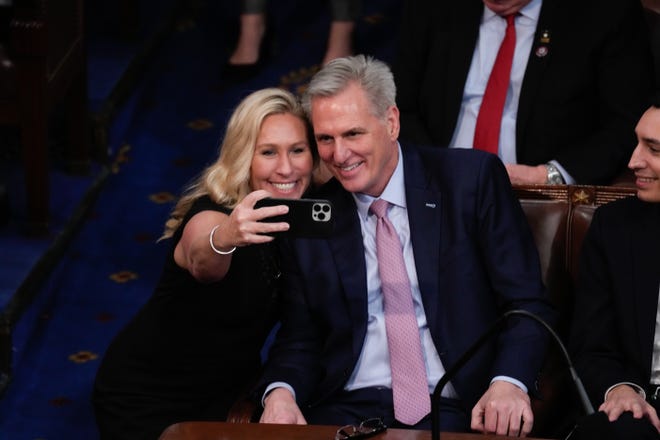The chaos and paralysis on display in the House of Representatives might have shocked Americans, but it would have been familiar to anyone who grew up in a parliamentary democracy. Because what played out in Congress was not the election of a House speaker. It was the formation of a coalition government.
House Republicans still call themselves Republicans, but they are actually now divided into three distinct parties, the Republican Governance Group, MAGA Republicans and the Freedom Caucus. These three don’t just have different priorities. They have different goals.
Worse, as is often the case in a coalition government, they don’t really trust each other, thus necessitating a complex power-sharing arrangement in the form of committee representation, rule changes and written agreements.
The problem with the House
Coalition governments cobbled together with the support of small, ideologically driven factions like the Freedom Caucus are usually neither effective nor long-lived. Sooner or later, they collapse under the weight of internal disagreement. When a government breaks down in a parliamentary democracy, the solution is a quick election and a new government.

But we don’t live in a parliamentary democracy. If the House of Representatives under Speaker Kevin McCarthy finds itself frozen by intra-Republican ideological food fights, no legislation will be passed until January 2025. Shutting down the government and defaulting on our debt is not an option. And yet, after…



























































